Search
Did you mean: Lycia?
Summary 
Loading AI-generated summary based on World History Encyclopedia articles ...
Search Results
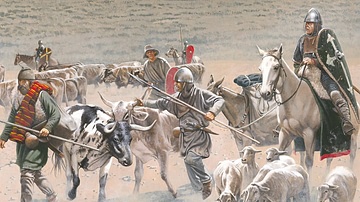
Image
El Cid Plundering the Iberian Countryside
Illustration of El Cid's (1043-1099 CE) men plundering the Iberian countryside by Zvonimir Grbasic. Courtesy of Medieval Warfare Magazine / Karwansaray Publishers.
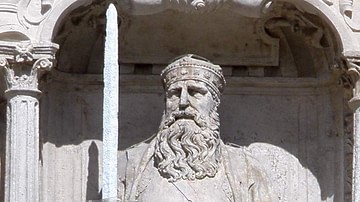
Image
Rodrigo Diaz de Vivar - El Cid
A statue of Rodrigo Diaz de Vivar - 'El Cid' (1043-1099 CE) the famed Spanish knight and general. Arco de Santa Maria, Burgos Spain.

Article
Medieval Knights: 12 of the Best
The knights of medieval Europe were meant to be the finest fighting men of their age, even more important, they were expected to be pure in thought and deed, as exemplified in the chivalrous code which they (usually) followed. Here are the...
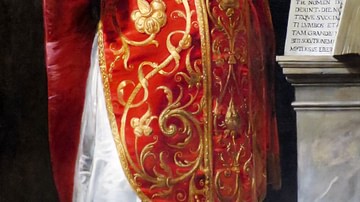
Definition
Ignatius of Loyola
Ignatius of Loyola (l. 1491-1556) was a Basque soldier who became a Catholic priest and theologian after a mystical experience convinced him he was called to the service of Christ. He founded the Society of Jesus (Jesuits) to defend the Church...

Definition
Excalibur
Excalibur is the sword of King Arthur in Sir Thomas Malory's iconic work Le Morte D'Arthur published in in 1485 CE. The sword was originally introduced in Geoffrey of Monmouth's History of the Kings of Britain (1136 CE) as Caliburnus (or...
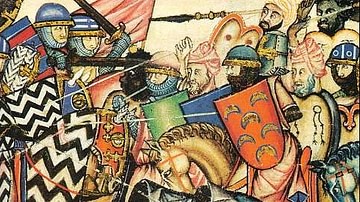
Definition
Reconquista
The Reconquista (Reconquest) or Iberian Crusades were military campaigns largely conducted between the 11th and 13th century CE to liberate southern Portuguese and Spanish territories, then known as al-Andalus, from the Muslim Moors who had...
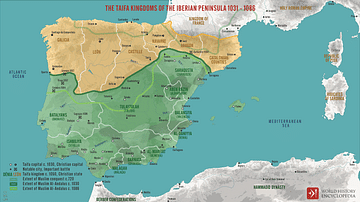
Definition
Taifa
Taifas ("factions" or "camps") were small independent Muslim kingdoms and principalities that emerged after the fall of hegemonic Muslim caliphates in al-Andalus – the Muslim-controlled part of the Iberian peninsula – during the High Middle...

Video
Faces of Ancient Near Eastern Women
This video is a slideshow of pictures of various artifacts and artworks that detail the visage of ancient Near Eastern women, most of which are royalty. Locations include: Mesopotamia (Sumer and Akkad), Arabia, Phoenicia (Lebanon) and Elam...

Video
The Origins of Ancient Egyptian Civilization
The Predynastic Period in Ancient Egypt is the time before recorded history from the Paleolithic to the Neolithic Age and on to the rise of the First Dynasty and is generally recognized as spanning the era from c. 6000-3150 BCE (though physical...

Video
The Rise and Fall of the Kingdom of Nabatea
The Nabatean Kingdom was a powerful political entity which flourished in the region of modern-day Jordan between the 4th century BCE and c. 106 CE and is best known today for the ruins of its capital city of Petra. Although it is clear that...